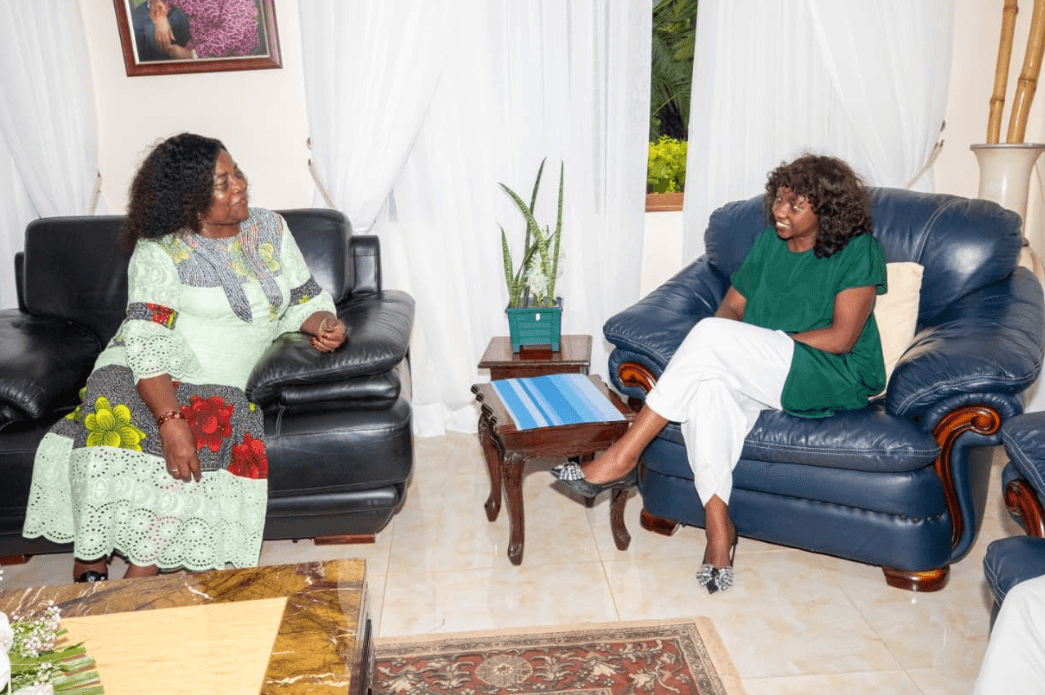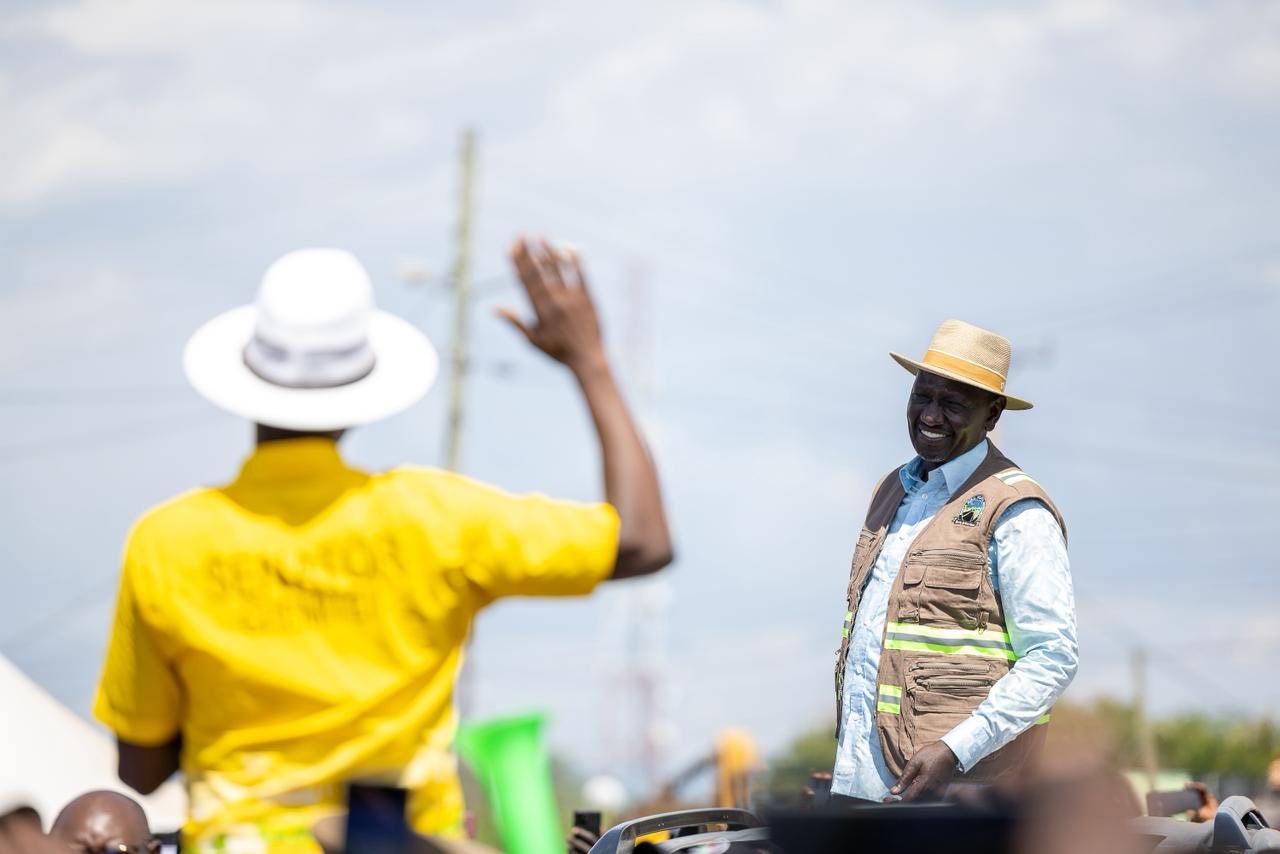The Kenyan branch of Forum for African Women Educationalists has hailed the success of its Imarisha Msichana Programme started two years ago to reduce teenage pregnancies in schools.
Kajiado Fawe county coordinator Nelly Naserian said the Imarisha Msichana pilot project targeted 20 counties to reduce the rising teenage pregnancies.
During the Covid-19 pandemic, Kajiado reported 22 per cent of schoolgirls becoming pregnant.
“In Machakos alone during the same period, 4,000 teenage girls got pregnant. The situation was so alarming that it forced Fawe to raise the matter with the African Union,” Naserian said.
She was speaking at Piliwa Day and Boarding Primary School in Kajiado Central on June 1.
The Imarisha Msichana project was started in July 2022. The main beneficiaries are teen mothers, girls between the ages of nine and 18, and young females aged between 19 and 25 years.
While some adolescents may choose to get pregnant, many pregnancies occur in the context of human rights violations, such as child marriage, coerced sex or sexual abuse, Naserian said.
The current trend in the country is that the percentage of females of 15 to 19 years old who have been pregnant increases with age.
“They have increased from 3 per cent among those aged 15 years to 31 per cent among those aged 19 years,” she said.
She said men are more likely to initiate sexual intercourse before the age of 15 than females (18 per cent versus 7 per cent).
Teenage pregnancy declines as the level of education increases.
We are giving the girls who had lost hope after getting pregnant a second chance to reinvent their lives
COVID SURGE
During Covid-19, the following counties recorded a significant upsurge in pregnancies in girls 15 to 19 years old: Migori (22 per cent), Homa Bay (23 per cent), Siaya (21 per cent), Busia (18 per cent) Nairobi (8 per cent) and Machakos (11 per cent).
Others were Kiambu (12 per cent), Murang’a (7 per cent), Trans –Nzoia (18 per cent), Garissa (15 per cent), Turkana (19 per cent), Bungoma (19 per cent), Kakamega (15 per cent) and Elgeyo Marakwet (12 per cent).
Also mentioned are Nakuru (17 per cent), Nyandarua (5 per cent), Narok (28 per cent), Kajiado (22 per cent), Meru (24 per cent) and Nyeri (5 per cent).
Teenage pregnancy has been recognised as one of the demographic events that hurt the future of young girls and the empowerment of women in general.
Most times, teenage pregnancy means the end of schooling, the beginning of motherhood in childhood and an uncertain future for the underage mother.
Naserian said this is a worldwide problem and various efforts, including policy and programme approaches, need to be put in place to reduce and eventually eliminate it.
Rev Wilfred Pilal and chief Ben Orat praised the Imarisha Msichana programme for keeping girls in school.
“Fawe helped us to bring back to school those young girls who had left school because of pregnancy,” Orat said.
“They are now working hard in their studies.”
Orat was speaking at Pioliwa School in Kajiado Central.
The chief said the initiative has helped many children secure their lost positions in classrooms, and that many have transited to high school after returning to school.
He said the project has also given the pupils in the local schools a chance to interact freely with their teachers.
“When the girls have menstrual issues, they no longer hide them and suffer alone. They talk freely to their teachers and parents about them, unlike before,” Orat said.
FRANK DISCUSSIONS
The school’s patron of the Tuseme Club, Ezekiel Tanchu, said the children are freer than before, and even report some of their parents when they attempt to circumcise the girls.
Girls and young females are the main beneficiaries of the project, and all interventions are geared towards preventing teenage pregnancies.
Naserian said re-entry to schools for impregnated girls has changed their lives for the better.
“We are giving the girls who had lost hope after getting pregnant a second chance to reinvent their lives,” the Fawe coordinator said.
Fawe is also assisting several schools in the marked areas with WiFi and desktops to better the children’s learning.
The organisation says it targeted adolescent girls and boys to benefit from knowledge and skills that would enable them to fully transition to adulthood.
On March 13, 2020, Kenya confirmed the first case of Covid-19.
To curtail the spread, the government imposed a lockdown and curfews within urban areas with high Covid-19 cases.
The pandemic had a number of effects. It increased the exposure of children to various vices.
Loss of livelihoods for communities resulted in loss of basic needs, which resulted in child labour and transactional sex.
Defilement and incest cases rose to unmanageable heights in the communities.
Child marriage, especially among the pastoralist communities, set in and resulted in high dropout for girls from schools.
This exacerbated the previous existing inequalities in education and teen pregnancies rose.
BACKGROUND, OBJECTIVES
Within four months of the onset of Covid-19, the number of impregnated teenagers countrywide shot up.
Fawe-Kenya, which was a leading organisation in the push for girls’ education, warned about the impact of Covid-19 on girls and women and dispatched an advisory statement to the African Union.
At the same time, it initiated the Imarisha Msichana (build a girl up/firm her up) project in Kenya to tame the rapid rate of teenage pregnancies.
Hence the start of the two-year pilot project, which was implemented in partnership with Mastercard Foundation, Centre for Rights Education and Awareness (CREAW) and Kenya Red Cross.
The 20 counties targeted include Kajiado, Nakuru, Nairobi, Machakos, Elgeyo, Maerakwet, Kiambu, Garissa, Bungoma, Kakamega and Nyeri.
Others are Migori, Murang’a, Narok, Homabay, Trans-Nzoia, Nyandarua, Busia, Meru, Siaya and Turkana.
The overall goal is to significantly reduce the cases of teenage pregnancies and child marriage.
This led to the assessment of the status and influence of Covid-19 on teenage pregnancy.
Fawe collaborated with duty bearers in generating credible and acceptable data for more structures and intentional interventions and decision-making to stem teenage pregnancies in Kenya.
It is from that decision that Fawe and its collaborators started training and sensitisation for girls in schools, young women, boys and young men, educators, duty bearers, religious leaders and local community leaders.
Boys and young men in the 20 select counties were sensitised on the prevention programmes and made champions of girls’ rights.
The same led to the creation of Tuseme Clubs in schools, the digitisation of the Tuseme model, the launch of mothers’ clubs in five counties and the establishment of menstrual product centres in five schools in every county in the programme.
Those who were involved in this strategy included the Ministry of Education, school administration, the Kenya Institute of Curriculum Development (KICD), the Ministry of Health, the Kenya Bureau of Statistics and the National Council of Population and Development.
Others are the Ministry of Gender, Advocates for Social Change, I Choose Life Africa, Fida and Cradle.












